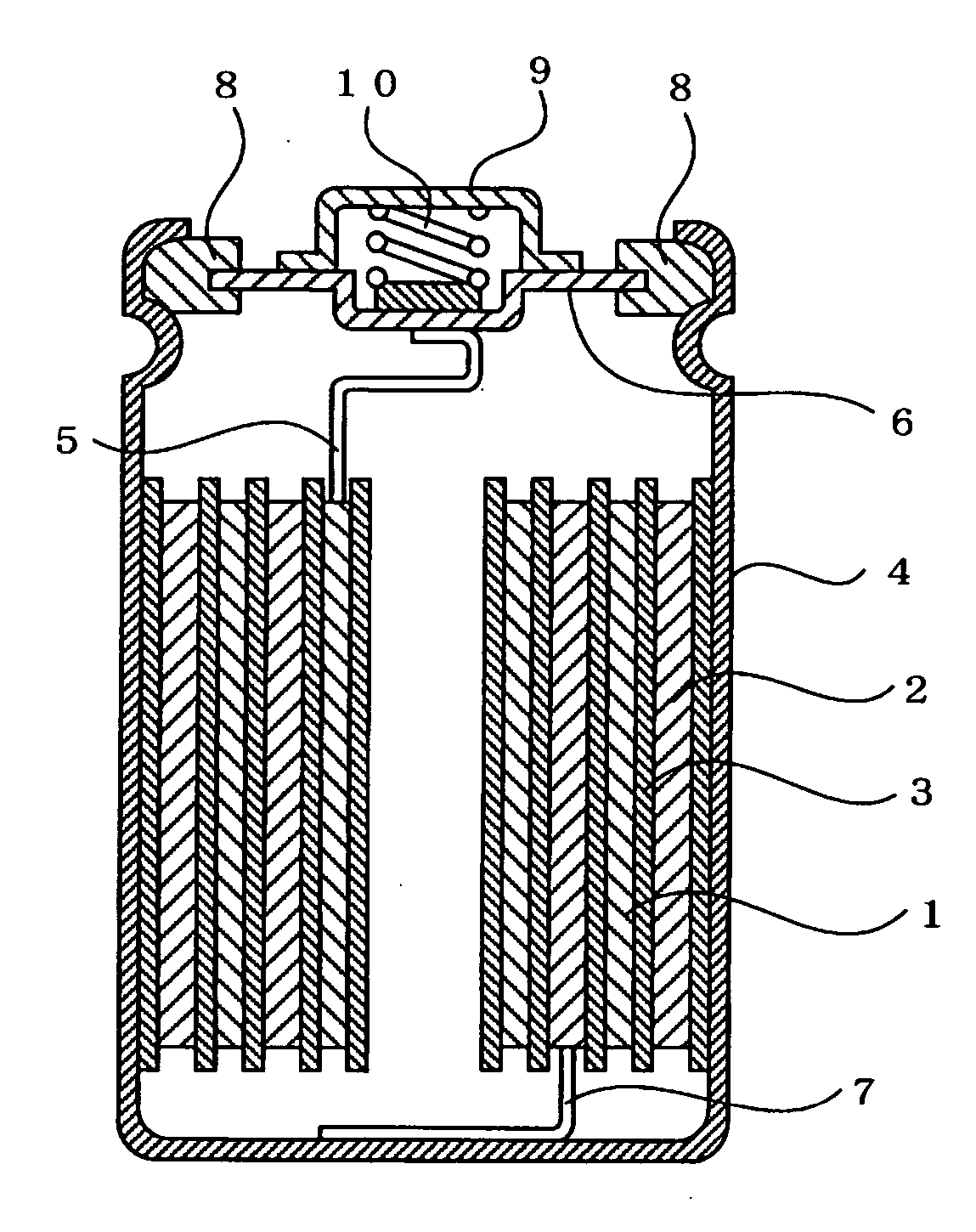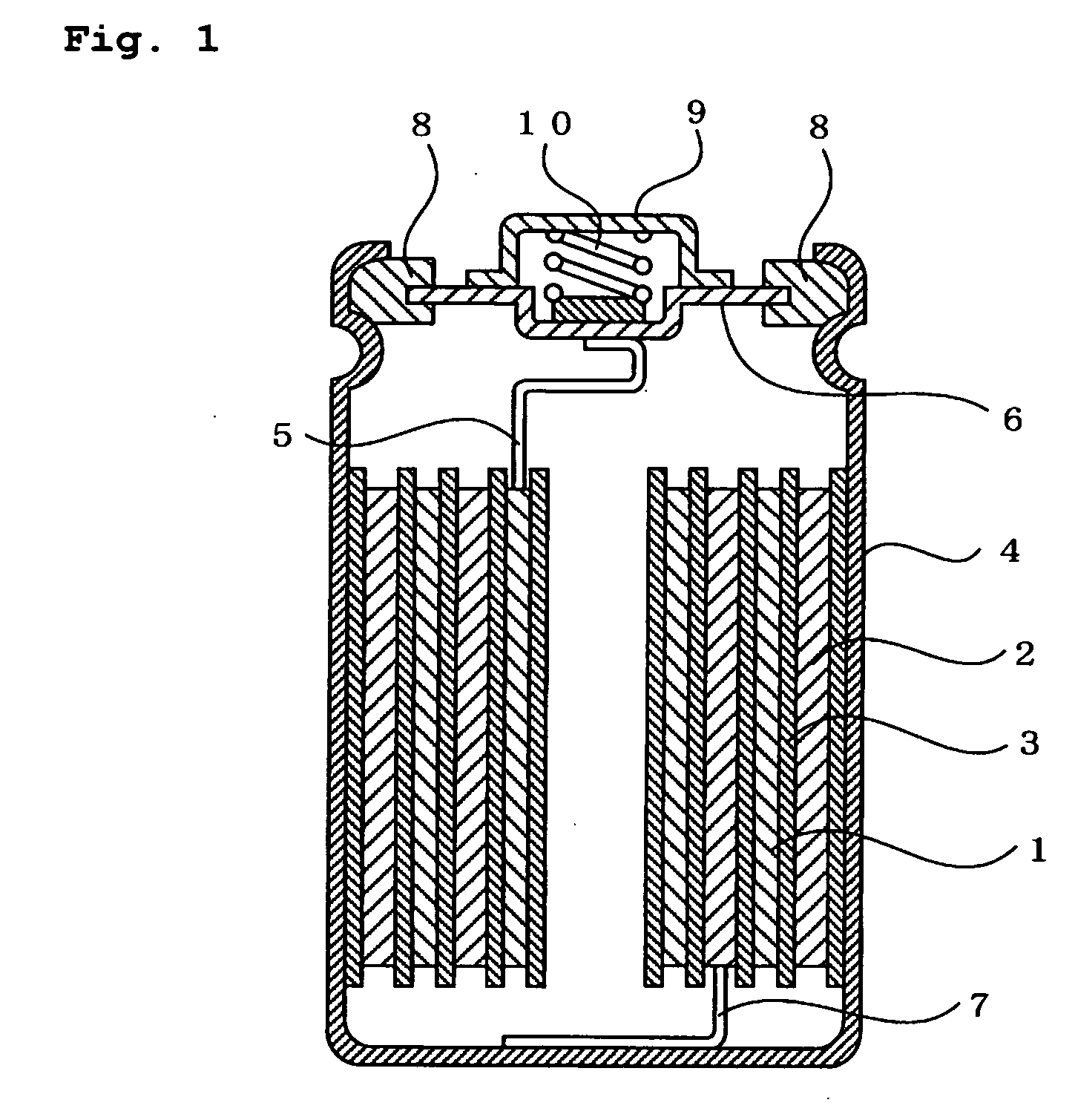Hydrogen-absorbing alloy electrode, alkaline storage battery, and method of manufacturing the alkaline storage battery
a technology of alkaline storage batteries and alloy electrodes, which is applied in the direction of secondary cell servicing/maintenance, sustainable manufacturing/processing, cell components, etc., can solve the problems of poorer high rate discharge capability and low temperature discharge capability of nickel-cadmium storage batteries, and achieves low temperature discharge capability and low temperature discharge capability. , the effect of improving the high rate discharge capability of the alkaline storage battery
- Summary
- Abstract
- Description
- Claims
- Application Information
AI Technical Summary
Benefits of technology
Problems solved by technology
Method used
Image
Examples
example 1
[0029] In Example 1, a hydrogen-absorbing alloy electrode for use as a negative electrode of an alkaline storage battery was prepared in the following manner. A rare-earth element La was mixed with Mg, Ni, Al, and Co so that a predetermined alloy composition was obtained. Then, the mixture was melted in an argon atmosphere and then cooled to obtain an ingot of hydrogen-absorbing alloy having the composition La0.75Mg0.25Ni3.2Al0.1Co0.1.
[0030] Then, the ingot of the hydrogen-absorbing alloy was annealed so that the alloy texture was made uniform in quality, and thereafter the ingot of the hydrogen-absorbing alloy was mechanically pulverized in an inert atmosphere. The pulverized alloy was then classified to obtain a powder of the hydrogen-absorbing alloy having the foregoing composition and a volume average particle size of 65 μm.
[0031] The hydrogen-absorbing alloy powder thus prepared was subjected to X-ray diffraction analysis. The X-ray diffraction analysis was carried out with t...
PUM
| Property | Measurement | Unit |
|---|---|---|
| particle size | aaaaa | aaaaa |
| diameter | aaaaa | aaaaa |
| particle size | aaaaa | aaaaa |
Abstract
Description
Claims
Application Information
 Login to View More
Login to View More - R&D
- Intellectual Property
- Life Sciences
- Materials
- Tech Scout
- Unparalleled Data Quality
- Higher Quality Content
- 60% Fewer Hallucinations
Browse by: Latest US Patents, China's latest patents, Technical Efficacy Thesaurus, Application Domain, Technology Topic, Popular Technical Reports.
© 2025 PatSnap. All rights reserved.Legal|Privacy policy|Modern Slavery Act Transparency Statement|Sitemap|About US| Contact US: help@patsnap.com



